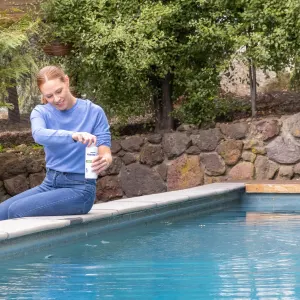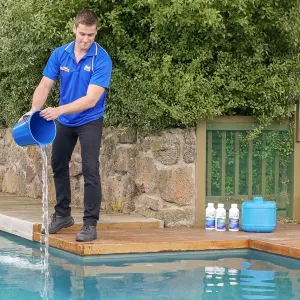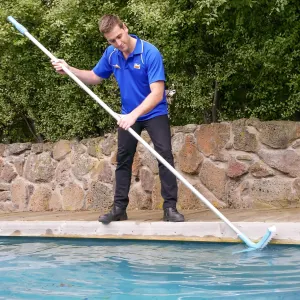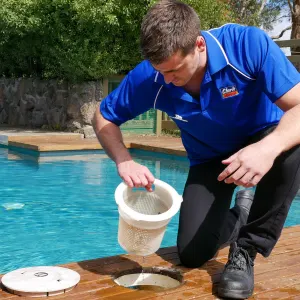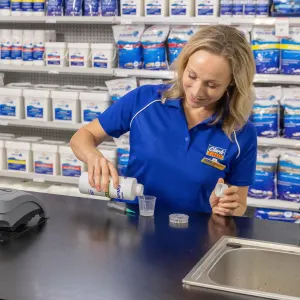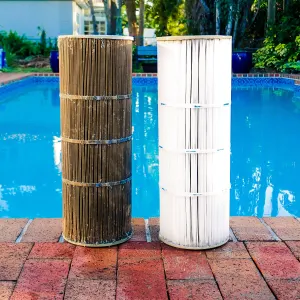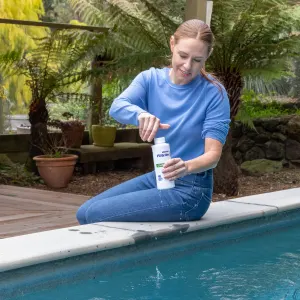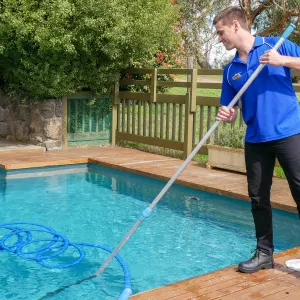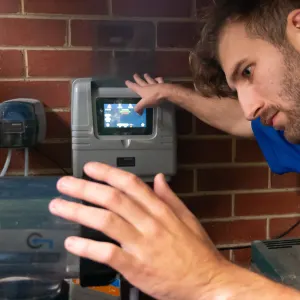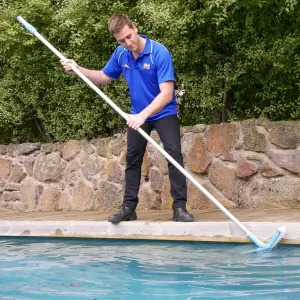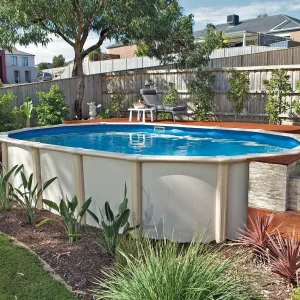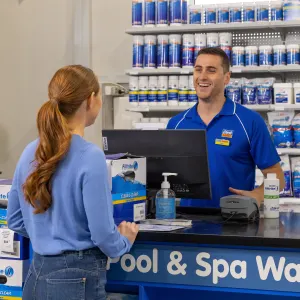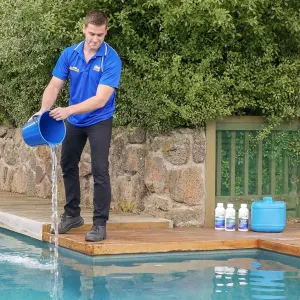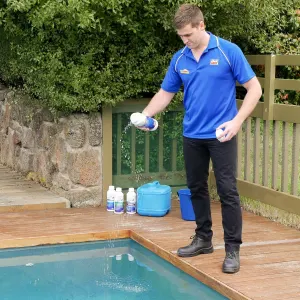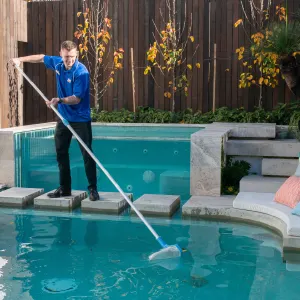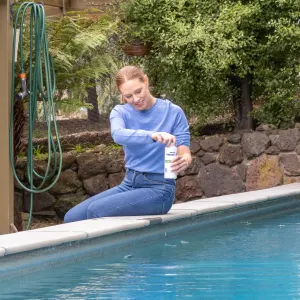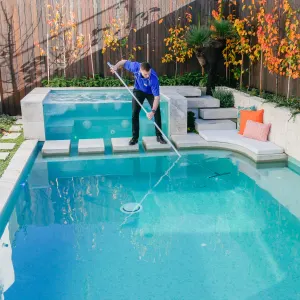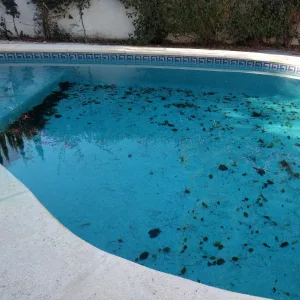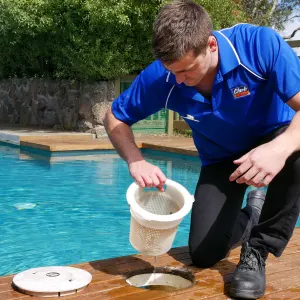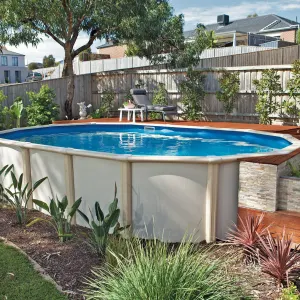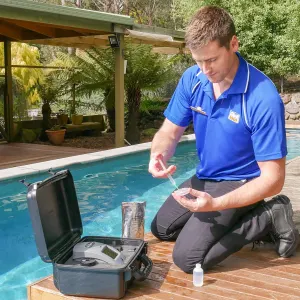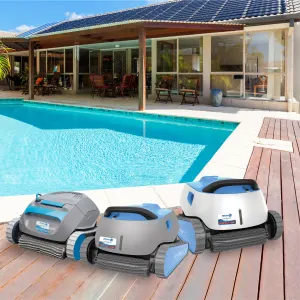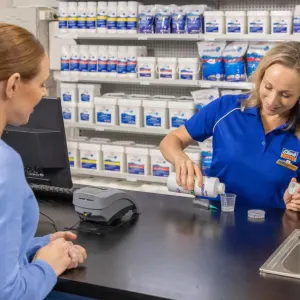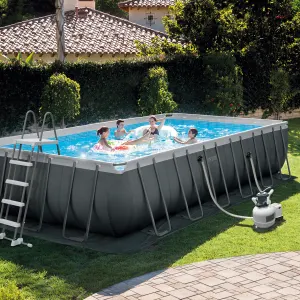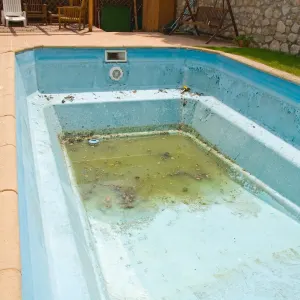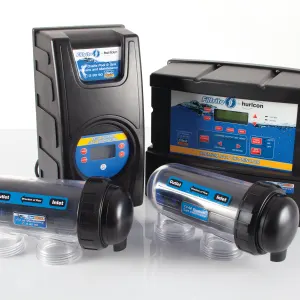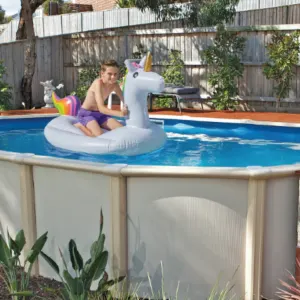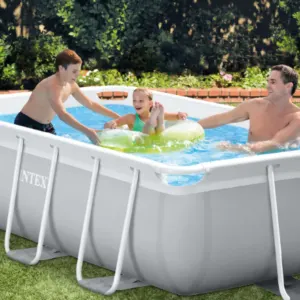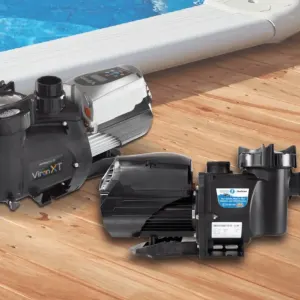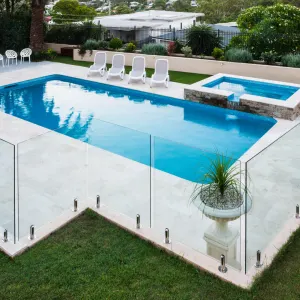How To Remove Phosphates From Pool Water
By Clark Rubber | 24th November, 2020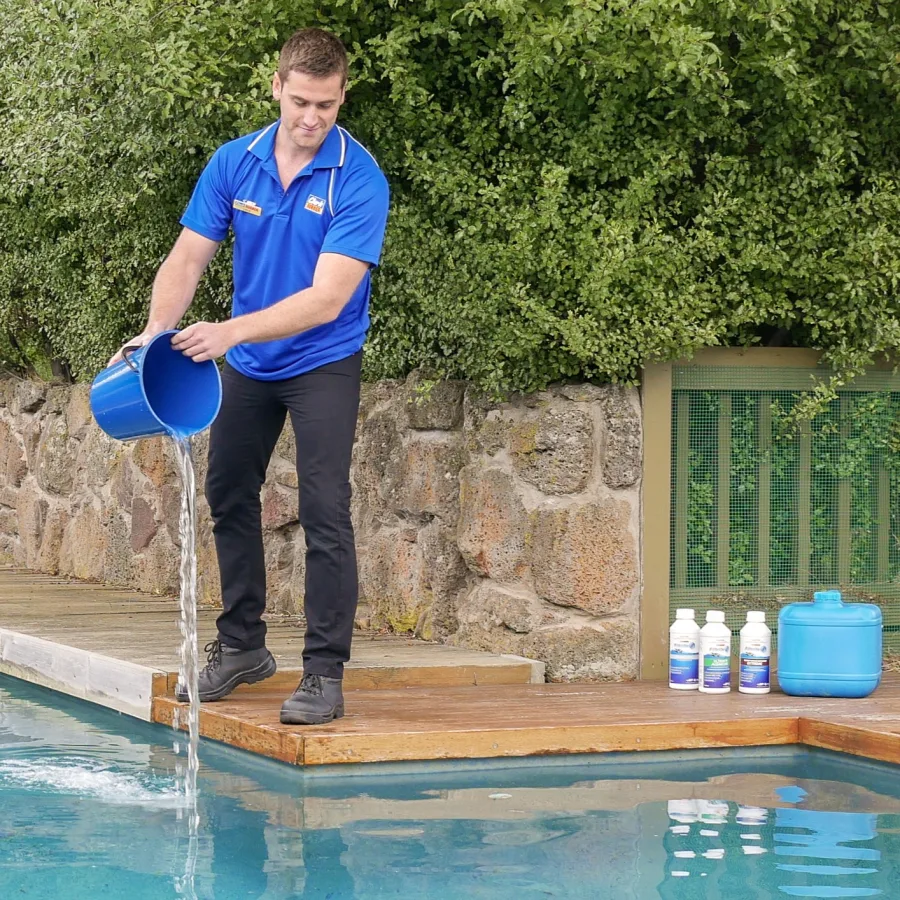
What are phosphates in pool water?
The quick answer is that phosphates are naturally occurring compounds that can enter your pool from a number of sources, including dirt, leaves, twigs, certain pool chemicals and bugs. Although they aren’t inherently harmful or toxic, high concentrations in your pool can cause algae growth and rapid chlorine consumption. Removing phosphates from pool water will prevent this growth and let your pool sparkle!
What causes phosphates in a swimming pool?
As mentioned earlier, excessive amounts of phosphates in your pool can be caused by a number of factors - many of which are difficult to control. These can include detergents from swimmers’ bathers, towels and skin, as well as any water runoff for in-ground pools. As such, it’s better to focus on the things you can control! By reducing the amount of leaves, branches and soil entering your pool, you can slow down the rise in pool phosphate and limit algae growth.
Why do I need to remove phosphates from my pool?
Firstly, it’s important to note that your pool will never be 100% clear of phosphates. As a prime food source for algae, the goal is to reduce high levels of phosphate in your pool so that it doesn’t get overrun by unwanted algae blooms.
Removing phosphates from pool water helps to prevent algae growth & enhances chemical efficiency, giving sparkling water clarity. A high phosphate level in pool water also affects the ability of your primary sanitiser (usually chlorine) to work efficiently. Always follow the manufacturers’ directions provided on the product.
How do I know if my pool phosphate levels are too high?
Even though phosphates are not directly harmful to swimmers, it’s still very important to monitor the health of your pool water frequently. The best way to do this is through regular testing. You can contact your nearest Clark Rubber store to get your pool water tested and identify if there are any other issues your swimming pool water might have.
You’ll know that levels are too high when algae begins to grow more rapidly, which can start an unwanted snowball effect. As it dies, algae releases more phosphate into the water, which then causes more growth, which then releases more phosphates, which then causes more growth, and so on! This is why it’s best to stay on top of it all year round to save yourself the headaches during summer.
What you’ll need:
How to remove phosphates:
1. Have your water professionally tested
Bring in a sample of your pool water and the experts at your local Clark Rubber store can test the phosphate levels in 60 seconds - for free! The team will test the water on the spot and let you know exactly what you need to get your pool looking crystal clear. Be sure to do this before starting any chemical treatments.
2. Add Filtrite Phosphate Eliminator
Perform a backwash if you have a sand filter or clean your element if you have a cartridge filter prior to treatment. Next, add Filtrite Phosphate Eliminator to the skimmer box so that it collects in the pool filtration system. Use an initial dose of 500 ml per 50,000 litres of water to most effectively remove phosphates from the water.
Filtrite Phosphate Eliminator from Clark Rubber is suitable for all types of pool finishes, sanitisers, other pool additives and is effective over a wide pH range. For improved water clarity, add Sparkle Pill to Skimmer Box.
3. Add Ultra Shock Plus to the surface of your pool
Use 500 grams per 50,000 litres of pool water. Filtrite Ultra Shock plus destroys chlorine formations and eradicates the strong smells that are caused when excess chlorine escapes the pool, as can happen with some oxidisers.
4. Monitor your pool water
While removing phosphates from your pool is an important part of the maintenance process, there are many other factors that go into making it sparkle year round. Make sure to get your water tested regularly by bringing in a sample into your local Clark Rubber store and our team of experts will help you out!

